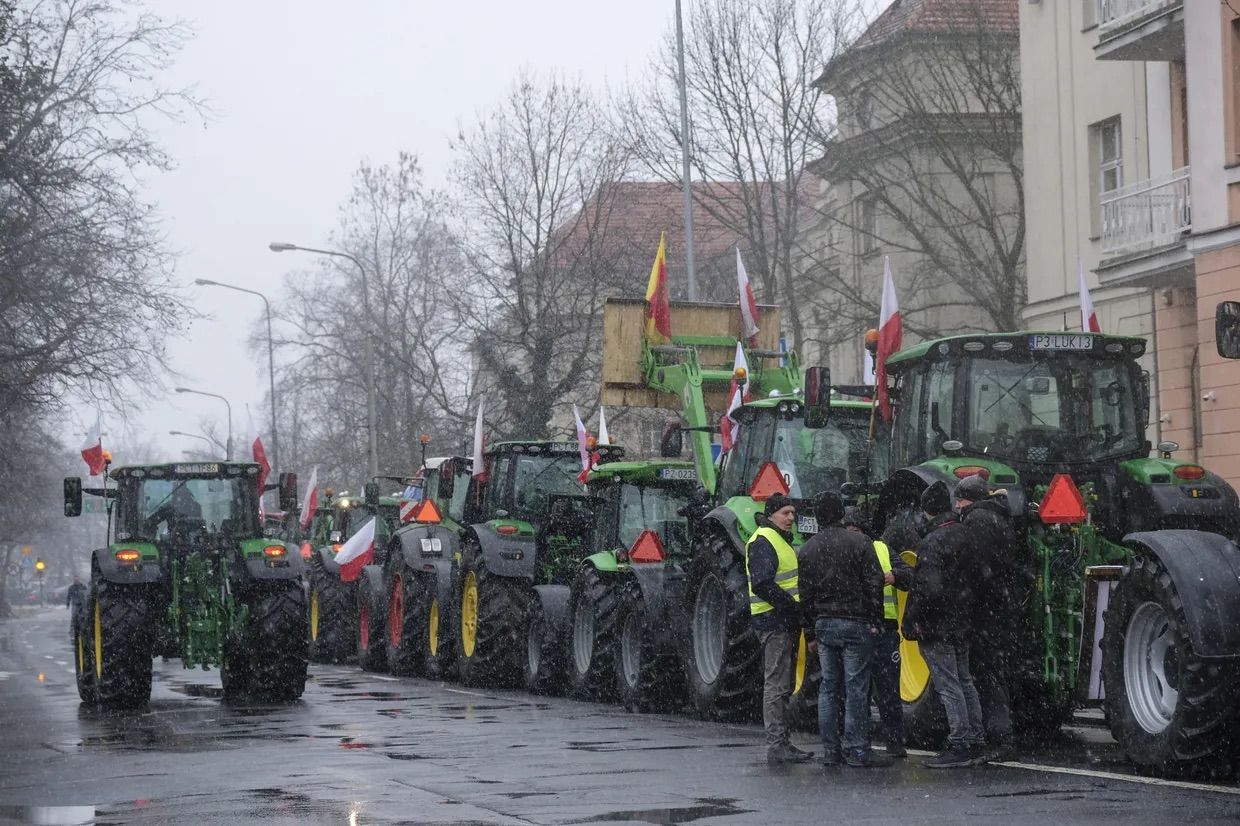Polish farmers to begin complete blockade of Ukrainian border crossings.

Polish farmers will begin a complete blockade of all border crossings and railway shipment stations between Ukraine and Poland starting Feb.
20, protestors announced on Feb.
13. "On Feb.
20, as part of the 30-day general strike of farmers, we announce that all protest activities will be focused on a complete blockade of all border crossings between Poland and Ukraine," the farmers' Solidarity trade union said in a statement. The Solidarity trade union announced on Feb.
1 that they would block roads and border crossings with Ukraine for 30 days starting on Feb.
9 because of the supposed "passivity of the Polish authorities" and of the EU in solving the import issue. A complete blockade of all export points on Ukraine's western border is a dramatic escalation of the current strike. "Not only border crossings will be blocked, but also communication hubs and access roads to transshipment railway stations and sea ports."
After the initial blockade between November 2023 and January, Polish farmers launched a new wave of protests on Feb.
9 at the Medyka-Shehyni, Hrebenne-Rava-Ruska, and Dorohusk-Yahodyn crossings.
As of the morning of Feb.
12, 1,050 trucks were reportedly waiting in lines in Poland en route to Ukraine. Footage appeared online on Feb.
11 showing Polish protesters spilling Ukrainian grain from standing trucks on the road near the Dorohusk crossing. Ukraine's Ambassador in Poland Vasyl Zvarych issued a protest, calling for a "decisive response" by Polish authorities.
The protests center around imports of agricultural goods from Ukraine, which Polish agricultural groups claim reinforces unfair competition with their businesses. Warsaw has banned the import of grain and several other products from Ukraine in 2023, but other items, such as sugar or poultry, continue to raise worries among Polish farmers. The Polish agricultural union argues that this new blockade aims to "ensure food security in the country."
Producers claim that new E.U. climate regulations and Ukrainian exports dramatically increase the cost of agricultural production.